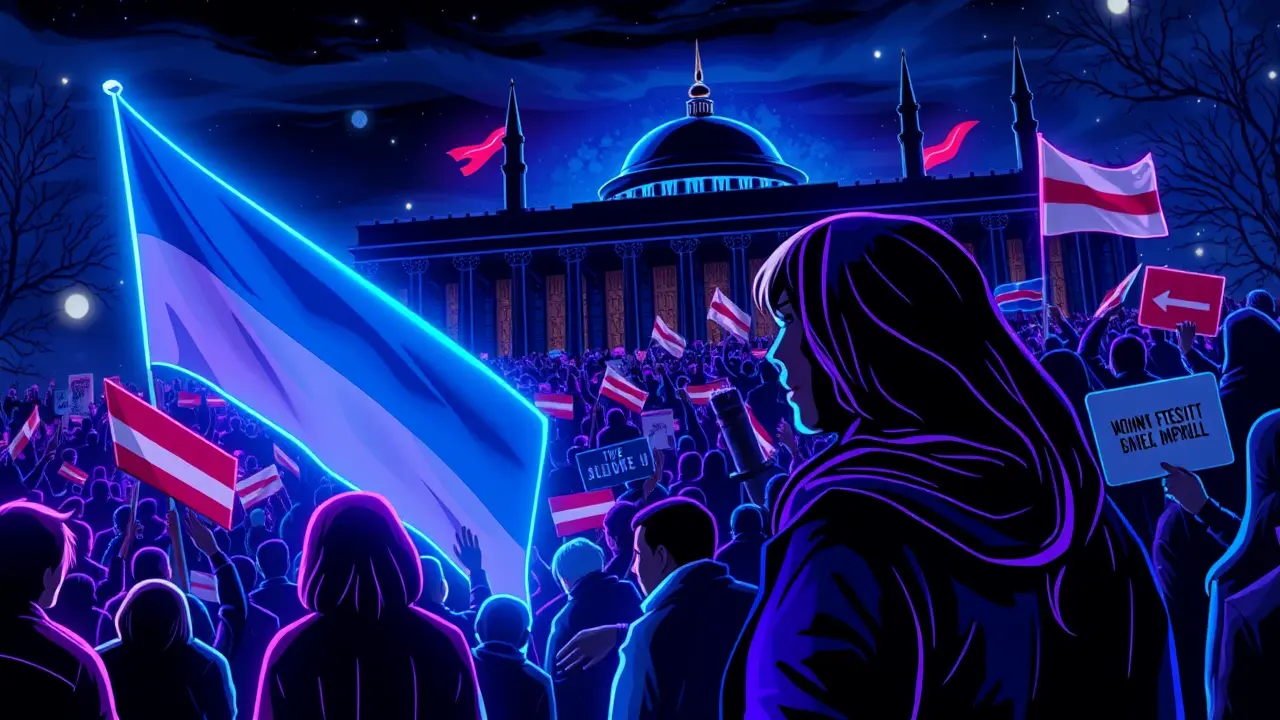
Politicshuman rights
Latvian MPs Vote to Withdraw from Women's Protection Treaty.
AN
Anna Wright
2 days ago7 min read
In a move that has sent shockwaves through the international human rights community and sparked immediate domestic outcry, the Latvian parliament has cast a decisive vote to withdraw from the Istanbul Convention, the landmark Council of Europe treaty specifically designed to prevent and combat violence against women and domestic violence. This decision, landing with the thud of profound political consequence, cannot be viewed in a vacuum; it represents the latest front in a deeply ideological battle being waged across Europe, where progressive frameworks for gender equality are increasingly being framed by nationalist and conservative factions as threats to traditional family values.The vote itself was met with the righteous fury of several thousand protestors who gathered, their voices a unified chorus of dissent against what they perceive as a catastrophic step backward for women's safety and fundamental rights, their placards and chants painting a vivid picture of a citizenry feeling betrayed by its own representatives. The air in Riga was thick not just with the chill of the Baltic autumn but with a palpable sense of historical regression, as if the hard-won protections painstakingly built over decades were being deliberately unraveled thread by thread.Now, the political and moral weight shifts squarely onto the shoulders of the nation's president, who holds the power to either promulgate the parliamentary decision or return it for reconsideration, a constitutional check that has become the final bastion for treaty advocates. This is more than a procedural footnote; it is a moment of supreme political drama, placing the presidency at the epicenter of a defining national identity crisis.The arguments deployed by proponents of withdrawal often echo a familiar, troubling script—one that mischaracterizes the convention's concept of 'gender' as a destructive social construct that undermines the natural family order, a narrative powerfully advanced by certain religious and conservative groups who see the treaty not as a shield for the vulnerable but as a Trojan horse for a radical cultural agenda. To fully grasp the gravity of this moment, one must consider the treaty's foundational principles: it was the first legally binding instrument in Europe to create a comprehensive framework of measures to prevent violence, protect victims, and prosecute perpetrators, recognizing violence against women as a severe violation of human rights and a form of discrimination.For Latvia, a nation that has long sought to anchor its identity and security within the broader European project, this withdrawal signals a troubling divergence from the core values of that very project, potentially isolating it from allies and complicating its standing in dialogues on human rights. The potential consequences are stark and multi-faceted; beyond the immediate symbolic blow, practical repercussions could include a reduction in specialized support services for victims, a weakening of legal precedents, and a chilling message to survivors that their government is retreating from its commitment to their safety.Imagine a woman, trapped in a cycle of abuse, watching the news and internalizing the message that the state no longer considers her protection a paramount international obligation—the psychological impact is incalculable. Expert commentary from sociologists and legal scholars points to a dangerous precedent, where international cooperation on gendered violence is sacrificed at the altar of populist politics.The protestors in the streets, therefore, are not merely expressing discontent; they are the living, breathing embodiment of a civil society fighting for its soul, their presence a powerful testament to the gap between political maneuvering and the will of the people they are meant to serve. As the president deliberates, the world watches, waiting to see whether Latvia will reaffirm its commitment to a Europe that protects all its citizens or succumb to a parochialism that leaves its most vulnerable behind.
#Latvia
#treaty withdrawal
#violence against women
#protests
#presidential decision
#featured
Stay Informed. Act Smarter.
Get weekly highlights, major headlines, and expert insights — then put your knowledge to work in our live prediction markets.
Related News
Comments
It’s quiet here...Start the conversation by leaving the first comment.
© 2025 Outpoll Service LTD. All rights reserved.











